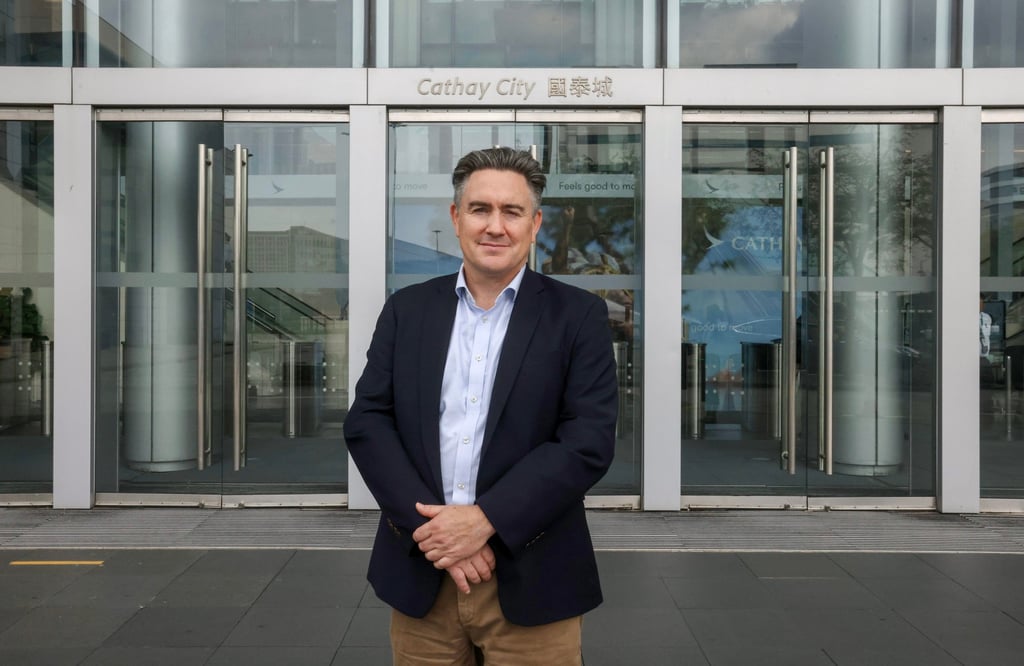DB Schenker joins Cathay’s sustainable fuel programme, pledging to cut carbon emissions
- Cathay Pacific’s sustainable aviation fuel programme encourages customers to contribute towards cutting carbon dioxide emissions

Cathay Pacific and DB Schenker, the logistics arm of German state railway operator Deutsche Bahn, have teamed up to promote the use of sustainable aviation fuel (SAF) and signed an agreement that will help cut more than 2,600 tonnes of carbon dioxide emissions.
DB Schenker signed up on Thursday to Cathay’s corporate SAF Programme, an initiative aimed at tackling climate change by advocating the use of SAFs instead of conventional fuels.
The programme encourages customers to contribute towards scaling up SAF use on Cathay flights. The airline issues members with documentation to prove scope 3 emissions reductions from their flights using SAF and helping companies reduce carbon emissions from business travel or cargo transport. Scope 3 emissions are direct emissions from goods and services bought from suppliers and customers upstream and downstream of a certain value chain.
The programme enables members to purchase SAF for use on Cathay Pacific and Cathay Cargo flights. By joining the programme, DB Schenker will be able to reduce the climate impact from its air cargo activities.
“By replacing conventional jet fuel with sustainable aviation fuel, DB Schenker’s commitment is the equivalent of saving more than 2,600 tonnes in carbon dioxide emissions,” said Tom Owen, Cathay Pacific’s director of cargo. “This powerfully conveys the message that there is a real and growing demand for SAF.”

SAF is produced mainly from agricultural residue, waste oils, municipal solid waste, industrial waste gases, and other non-fossil carbon sources, and has the potential to reduce carbon emissions by over 80 per cent.